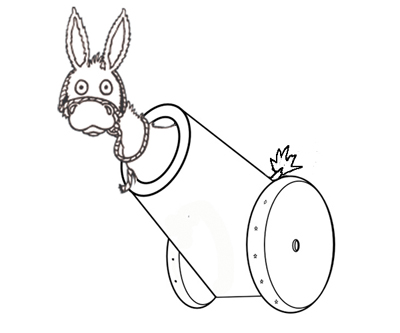A man calls his mother in Florida. “Mom, how are you?”
“Not too good,” says the mother. “I’ve been very weak.”
The son says, “Why are you so weak?”
She says, “Because I haven’t eaten in 38 days.”
The man says, “That’s terrible. Why haven’t you eaten in 38 days?”
The mother answers, “Because I didn’t want my mouth to be filled with food if you should call.”
Emotional manipulators use guilt-aversion as a lever to control the behavior of others. In the joke above, the mother has many options for dealing with her lonely empty-nest feelings. She could reach out to other empty-nesters, or make herself useful to friends and neighbors. When she wants to talk to her son, she can call him. She can give him incentive to call her by being pleased and happy when he calls: “It’s great to hear your voice! How are you? What’s going on?”—courting his attention as she would with any valued friend. She might even open up and confide to him that she’s having a hard time moving on to the next stage of her life.
The mother doesn’t take steps to solve her problems because, subconsciously, she believes she needs those problems as levers of control. Guilt mongers tend to view themselves as uninteresting and unloveable. Their only claim to fame is that they’ve suffered more than others and so deserve extra consideration. Therefore, they need to preserve a veneer of misery to use whenever they want to wring something out of someone. They are “victims with intent.” [Read more…]
 I’m a people-pleaser. I hate to disappoint anyone. When folks have conflicting expectations, I’ll twist myself into a pretzel to avoid taking sides. Sometimes I try to prevent conflicts by guessing, in advance, what people are going to want. This doesn’t work very well. It can even lead me to abandon a perfectly good plan because of imagined criticism that hasn’t happened yet.
I’m a people-pleaser. I hate to disappoint anyone. When folks have conflicting expectations, I’ll twist myself into a pretzel to avoid taking sides. Sometimes I try to prevent conflicts by guessing, in advance, what people are going to want. This doesn’t work very well. It can even lead me to abandon a perfectly good plan because of imagined criticism that hasn’t happened yet.
